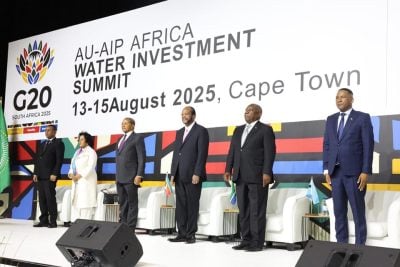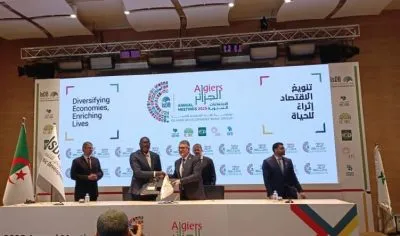This article was produced with the support of United Nations Economic Commission for Africa (ECA)
A high-level panel at the weekend event, Promotion of inclusive and effective international tax cooperation at the United Nations, heard from experts from the African Union, national tax authorities, and civil society on the tough battle the continent is fighting for a fairer and more inclusive system.
There were calls for negotiators at the Framework Convention on International Tax Cooperation meetings at the UN to take advantage of all structures at their disposal including the AU, the ECA, the G77 currently chaired by Uganda, and the Africa Group based at the UN to push their mandate.
The redrafting of the international tax system is a once-in-a-lifetime opportunity for Africa to tackle a system that has enabled tax avoidance and evasion and illicit financial flows as well as other leakages in the tax system, mostly attributed to the activities of multinational companies.
Hanan Morsy, ECA Deputy Executive Secretary, said the estimated $88bn loss to Africa from illicit financial flows annually was more than twice the amount Africa received in official direct assistance.
Several panellists stressed that in order to strengthen Africa’s case, its proposed resolution should not only focus on this continent’s needs but address the broader principle of fairness and inclusivity.
This would help Africa to get support from other regions to strengthen it against powerful developed countries, many of which have crafted the current system to suit their own interests and are home to multinational companies invested in Africa.
Daniel Nuer, Head of Tax Policy Unit, Ministry of Finance, Ghana, and Member of the ad hoc drafting committee for the UN Framework, said it has become clear there are some entrenched positions at the negotiations.
To counter this, it was important for Africa to seek support from other regions in driving forward its proposition.
Djamel Ghirib, Economic Development, Integration and Trade Director at the African Union Commission, said that in November, Africa’s draft had been well accepted by participants but as time went on, its voice had been diluted through amendments, highlighting a pushback by the North.
Africa’s position has been weakened by a lack of political support from many member states, and a lack of capacity and institutions to build a compelling continental position.
Ghirib said the African ambassadors in New York needed to be supported by a strong technical team to address the complex issues in negotiations.
Mary Baine, Deputy Executive Secretary of the 42-member African Tax Administration Forum, stressed the need for more political support to reach a common position on the issues.
Out of 27 countries represented in negotiations, only four were really active while the US and other countries had large delegations.
“The tax negotiations are very complex and we must be ready for that. We are already going into a process where war has been declared.”
Emerging issues for tax authorities include e-commerce, online advertising, and the use of crypto currencies for payments.

 Sign in with Google
Sign in with Google 



